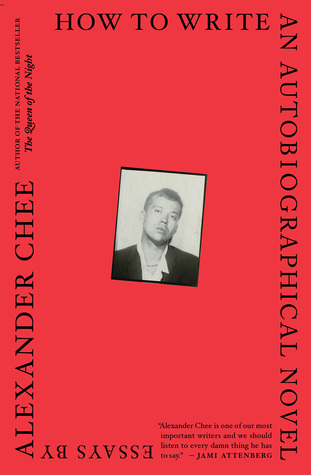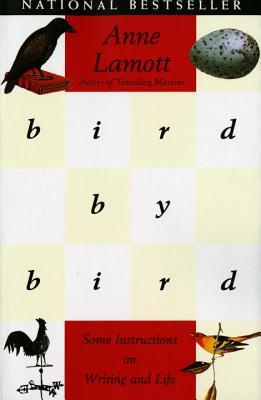why/write
Richard Seymour,
Patricia Highsmith,
Ursula K. Le Guin,
Anne Lamott,
Alexander Chee,
Jennifer Egan,
Roberto Bolaño,
Mary Karr,
Jonathan Franzen
Why write?
[...] There was something I wanted to feel, and I felt it only when I was writing. I think of this as one of the most important parts of my writer's education---that when left alone with nothing else to read, I began to tell myself the stories I wanted to read.
[...] The point of it is in the possibility of being read by someone who could read it. Who could be changed, out past your imagination's limits. Hannah Arendt has a definition of freedom as being the freedom to imagine that which you cannot yet imagine. The freedom to imagine that as yet unimaginable work in front of others, moving them to still more action you can't imagine, that is the point of writing, to me. You may think it is humility to imagine your work doesn't matter. It isn't. Much the way you don't know what a writer will go on to write, you don't know what a reader, having read you, will do.
[...] Writing has so much to give, so much to teach, so many surprises. The thing you had to force yourself to do - the actual act of writing - turns out to be the best part. It's like discovering that while you thought you needed the tea ceremony for the caffeine, what you really needed was the tea ceremony. The act of writing turns out to be its own reward.
[...] they may even go from wanting to have written something to just wanting to be writing, wanting to be working on something, like they'd want to be playing the piano or tennis, because writing brings with it so much joy, so much challenge. It is work and play together. When they are working on their books or stories, their heads will spin with ideas and invention. They'll see the world through new eyes. Everything they see and hear will become grist for the mill. At cocktail parties or in line at the post office, they will be gleaning small moments and overheard expressions: they'll sneak away to scribble these things down. They will have days at the desk of frantic boredom, of angry hopelessness, of wanting to quit forever, and there will be days when it feels like they have caught and are riding a wave.
This leaves me with the thought that the problem and possibilities of the contemporary social novel are not exclusively tied to genre—i.e., they are not the classical problems of the novel, per se. They aren’t exactly the problems and possibilities offered by the familiar challenge of maintaining a balance between action and description (famously described by György Lukács in his rants on the political efficacy of realist prose). There’s something challenging in this unfamiliar territory but also something hopeful, not just because we seem still to like novels, but because it’s clear that literature can contribute, in a significant way, to contemporary events. And where literature can help is in its combinatory and experimental capacities. Novelists can do things and try things that academics and critics cannot. So I am advocating for that now. Let’s have more social novels that explore the disruption and near-impossibility of our cherished narrative forms. Let’s have more social novels that look for narrative—and even fail to find it. In their spectacular and detailed failure, such novels may more closely resemble us.
To me the important thing is not to offer any specific hope of betterment but, by offering an imagined but persuasive alternative reality, to dislodge my mind, and so the reader's mind, from the lazy, timorous habit of thinking that the way we live now is the only way people can live. It is that inertia that allows the institutions of injustice to continue unquestioned.
[...] I hope every writer has had at least a moment when they rode the wave, and all the words were right.
As readers, we have all ridden that wave, and known that joy.
Prose and poetry - all art, music, dance - rise from and move with the profound rhyhtms of our body, our being, and hte body and being of the world. [...] Once we get the beat, teh right beat, our ideas and our words dance to it, the round dance that everybody can join. And then I am thou, and the barriers are down. For a little while.
The summer evenings of my boyhood when I used to ride by her cottage speak to me in that voice of hers now. On a road among fields, where it met the desolate highway, I would dismount and prop my bicycle against a telegraph pole. A sunset, almost formidable in its splendor, would be lingering in the fully exposed sky. Among its imperceptibly changing amassments, one could pick out brightly stained structural details of celestial organisms, or glowing slits in dark banks, or flat, ethereal beaches that looked like mirages of desert islands. I did not know then (as I know perfectly well now) what to do with such things—how to get rid of them, how to transform them into something that can be turned over to the reader in printed characters to have him cope with the blessed shiver—and this inability enhanced my oppression. A colossal shadow would begin to invade the fields, and the telegraph poles hummed in the stillness, and the night-feeders ascended the stems of their plants. Nibble, nibble, nibble—went a handsome striped caterpillar, not figured in Spuler, as he clung to a campanula stalk, working down with his mandibles along the edge of the nearest leaf out of which he was eating a leisurely hemicircle, then again extending his neck, and again bending it gradually, as he deepened the neat concave. Automatically, I might slip him, with a bit of his plantlet, into a matchbox to take home with me and have him produce next year a Splendid Surprise, but my thoughts were elsewhere: Zina and Colette, my seaside playmates; Louise, the prancer; all the flushed, low-sashed, silky-haired little girls at festive parties; languorous Countess G., my cousin’s lady; Polenka smiling in the agony of my new dreams—all would merge to form somebody I did not know but was bound to know soon.
AAAAHHHH
[...] I am not predicting, or prescribing. I am describing. I am describing certain aspects of psychological reality in the novelist's way, which is by inventing elaborately circumstantial lies.
In reading a novel, any novel, we have to know perfectly well that the whole thing is nonsense, and then, while reading, believe every word of it. Finally, when we're done with it, we may find - if it's a good novel - that we're a bit different from what we were before we read it, that we have been changed a little, as if by having met a new face, crossed a street we never crossed before. But it's very hard to say just what we learned, how we were changed.
The artist deals with what cannot be said in words.
The artist whose medium is fiction does this in words. The novelist says in words what cannot be said in words.
[...] The future, in fiction, is a metaphor.
A metaphor for what?
If I could have said it nonmetaphorically, I would not have written all these words, this novel; [...]
There’s a passage in The Ask where Milo likens himself to a figure in Hopper’s Nighthawks, and he mentions how, as a painter, he’d always described it in terms of “the stark play of shadow and light.” This is a perfectly appropriate way of looking at Hopper’s work, but then Milo says, “to be the fucker on the stool is another kind of stark entirely.” It’s a funny line, a throwaway almost, but it strikes me as an encapsulation of the burden of writers working today. Yeah, we’re concerned with form, with language, with allusiveness and scaffolding—the legacy of modernist and postmodernist writing—but a lot of us also want, to a degree maybe not countenanced by more playful antecedents, to get at the starkness of being “the fucker on the stool.” That seems like the project David Foster Wallace was working on for his entire career: getting at that, at how the methods of getting at it sometimes work at cross-purposes to the goal.







